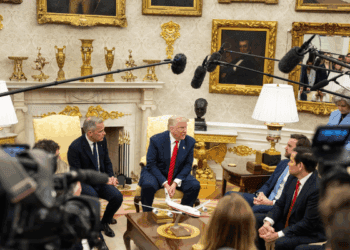The demise of Alberta’s flat tax is imminent. Brian Lee Crowley laments the death of a “valuable and courageous experiment” in tax reform – one that’s more progressive than most people think.
By Brian Lee Crowley, Jan. 8, 2015
The Alberta NDP have announced that they are getting rid of the mis-named “flat tax” on incomes in the province. Once a cornerstone of the “Alberta Advantage” that former premier Ralph Klein touted so enthusiastically, the former Progressive Conservative government of Jim Prentice had already signalled this bold tax experiment’s demise. All the NDP are doing is moving up the funeral date.
The reason for the policy change, however, is worth spending a moment on. Premier Rachel Notley proudly announced that the province was abandoning the flat tax in favour of a “progressive” income tax just like all the other provinces. Now progressive is an interesting word in the tax context. It is usually taken to mean that people with higher incomes should pay proportionately more than people on lower incomes, and that the tax burden should become steeper as your income rises.
You can’t understand how a flat tax works unless you rid yourself of the idea that it is a single tax rate applied on all income.
But then if that’s what progressive means, the flat tax achieves this quite successfully, while avoiding some of the well-known problems associated with the so-called progressive model of income tax used in Ottawa and the other provinces.
How can that be if the Alberta flat tax is ten percent on all incomes? Well it couldn’t be if the flat tax meant people paid ten percent income tax on every dollar that they earned. But that is not what a flat tax does, and that’s why I said it is a misnomer.
You can’t understand how a flat tax works unless you rid yourself of the idea that it is a single tax rate applied on all income. It is in fact two tax rates: the first rate is zero percent, applied on some basic amount of income, and then all other income after that is taxed at the flat rate– in Alberta’s case, ten percent.
It is the interplay between these two tax rates that creates a perfectly defensible level of “progressivity” in the income tax system.
Consider a few examples using a hypothetical flat tax system where the first $20,000 of income is taxed at the zero percent rate, and all other income above that basic amount is taxed at a flat ten percent rate without any other credits or deductions.
If you earn $20,000 under this system, you pay no income tax whatsoever. If you earn $25,000, you would be taxed on the amount your income exceeded the basic amount, in this case $5,000. A ten percent tax rate would therefore net the Treasury $500. That is an average tax rate on your total income of two percent.
If you earned $50,000, you would pay $3,000 in income tax, an average tax rate of six percent. Note that not only are you paying more tax, but the share of your income going to tax is rising as well.
At an income of $100,000 your tax bill is $8,000 but your tax rate has risen to eight percent. At $200,000 you pay $18,000 in taxes but your tax rate is now nine percent, or half again higher than someone earning $50,000. And so on. So far so progressive.
Now note two things about this approach.
Alberta’s flat tax is progressive–just not as steeply so as some revenue-hungry politicians might like.
First, the progressivity of the system results from the interplay between the size of the basic exempt amount and the tax rate applied to the income above that. Suppose for example that we lowered the exemption to $10,000 and increased the tax rate to 15 percent. Then our $25,000 earner would face an average tax rate of 9 percent, and our $200,000 income now attracts a tax rate of 14.25 percent.
The second thing to note is that such a flat tax avoids the disincentives inherent in a multi-rate income tax. The economist’s rule of thumb is that if you tax something you’ll get less of it. What does a tax on income tax? Work, effort and success, which are beneficial things Canada could use more of.
Under a flat tax, every dollar you earn above the basic exemption attracts the same flat tax rate so there is no disincentive to work at higher income levels. Not so under the kind of multi-rate system used elsewhere in Canada. There each time you pass another tax threshold, the share of the next marginal dollar in income going to tax rises. Unless rates are kept within bounds, high earners can face big incentives to work less and take their reward in, say, untaxed leisure time.
So contrary to the NDP’s claims, Alberta’s flat tax is progressive–just not as steeply so as some revenue-hungry politicians might like. But its abolition comes at a cost: it will rob us of a valuable and courageous experiment in trying to reconcile progressivity and efficiency in the tax system.
Brian Lee Crowley (twitter.com/brianleecrowley) is the Managing Director of the Macdonald-Laurier Institute, an independent non-partisan public policy think tank in Ottawa: www.macdonaldlaurier.ca.




